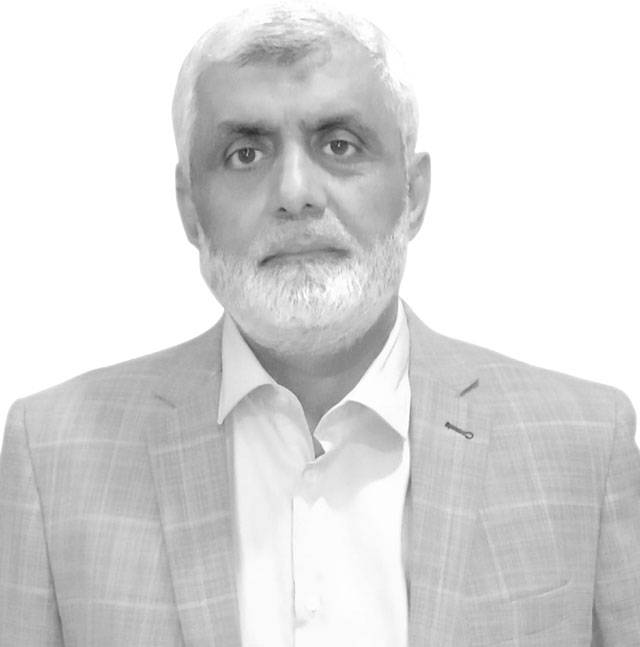It is rather surprising that the person who has most profoundly influenced the ethos of the Pakistan Air Force (PAF) is neither an aviation guru nor a military genius. This unique honour belongs to Dr Muhammad Iqbal, whose poetry is a constant source of inspiration for the PAF and its personnel. While he is commonly regarded as the national poet of Pakistan, the appeal of Iqbal’s poetry cuts across geographical and even ideological bounds. The universality of Iqbal can be gauged from the fact that his philosophy is embraced by conservatives, modernists, and socialists with the same passion. But a rare attribute of Iqbal’s poetry is its lasting influence on the ideals of a fighting service like the Pakistan Air Force (PAF). As we celebrate Iqbal’s 145th birth anniversary this month, it would be worthwhile to refresh his message in the context of PAF.
Iqbal, in the words of renowned scholar, Ahmed Javed, is unique amongst intellectuals in Islamic history who not only understood the message of Islam in its true perspective but importantly, was also successful in preserving its essence in its pristine purity through his poetry. This makes his work a great resource for times to come. Iqbal’s poetry is distinct, not merely in terms of the quality of its content, but stands out equally grander because of its style, imagery, and allegory. The rarity of such a blend of form and substance makes Iqbal one of the greatest Urdu and Persian poets of all time. The profound relationship between Iqbal and the PAF can be attributed to both these factors.
Air Marshal Asghar Khan, the first Pakistani Commander-in-Chief of the PAF, realising that PAF would always be challenged by a numerically superior enemy, had outlined the dictum ‘train to fight outnumbered’. This premise, according to Air Chief Marshal Jamal Ahmed Khan, has remained central to PAF’s operational doctrines. Iqbal’s message of dynamism, ceaseless struggle, khudi (self-actualisation), the pursuit of excellence, disciplined life and attainment of faith provides the intellectual and spiritual underpinnings for the PAF’s doctrinal thought. Time and again, the PAF warriors, inspired by Iqbal’s spirited poetry have demonstrated their outstanding skills to subdue their numerically superior adversary, a glimpse of which was witnessed in the heroic display on 27th February 2019.
PAF’s relationship with Iqbal can also be explained based on the symbols and diction used extensively in his poetry which connects perfectly with the PAF’s identity. A pertinent illustration of this linkage is the symbol of ‘Shaheen’ (Eagle), which holds a special significance in Iqbal’s poetry, while also being regarded as the characteristic emblem of PAF. Shaheen is a charismatic bird frequently represented in Iqbal’s poetry, whose attributes of valour, grace, speed, hunting skills, endurance, domination, and freedom are expressively used by him to infuse a daring spirit in the youth while simultaneously disapproving of the tendencies of status quo, ‘passivity and sloth’.
Shaheen embodies every trait that PAF aspires to instil in its young combatants. The reason is that while there are numerous species of birds, the Shaheen stands out for its fearlessness, hunting skills and domination of the skies. So do the PAF warriors. There are numerous other phrases and idioms commonly resonating in Iqbal’s poetry which strike a chord with PAF’s fraternity, for example, zouq-e-parvaz (a passion for flying), lazzat-e-parvaz (penchant for flying), uqabi-ruh (indomitable spirit), wusat-e-aflak (boundless skies). Though written for all readership, such expressions are perhaps best understood and hence, become a source of motivation, in the context of the professional experience of PAF’s community. For them, Iqbal’s poetry transcends the status of informational or literary knowledge. It becomes, indeed, a lived experience.
There is yet another dimension of Iqbal’s philosophy which carries even greater significance for the PAF. Besides expounding his idea of khudi (self-actualisation) which relates to the consciousness, development and expression of one’s being, Iqbal also theorised the concept of bekhudi (Selflessness) which represents the spirit of ‘self-surrender’ and the ‘sacrifice of self’ for the greater good and cause of society. For every member of the PAF, Iqbal’s ‘concept of selflessness’ is an assertion of their sacrosanct pledge to ‘live for, fight for and die for’ their ‘faith, country and the PAF’.
Wednesday, April 17, 2024
PAF’s relationship with Iqbal

Opp to raise PTI founder’s release issue in Parliament
April 17, 2024
PTI founder’s counsel concludes arguments
April 17, 2024
CM Maryam, Nawaz Sharif reach public to find Roti price
April 17, 2024
IHC dismisses Bushra Bibi’s plea for shifting to Adaila Jail
April 17, 2024
Rail Revival
April 17, 2024
Addressing Climate Change
April 17, 2024
Saudi Investment
April 17, 2024
Political Reconciliation
April 16, 2024
Pricing Pressures
April 16, 2024
Workforce inequality
April 17, 2024
New partnerships
April 17, 2024
Shikarpur crisis
April 17, 2024
Peace quest
April 17, 2024
Democratic harmony
April 16, 2024
ePaper - Nawaiwaqt
Advertisement
Nawaiwaqt Group | Copyright © 2024





